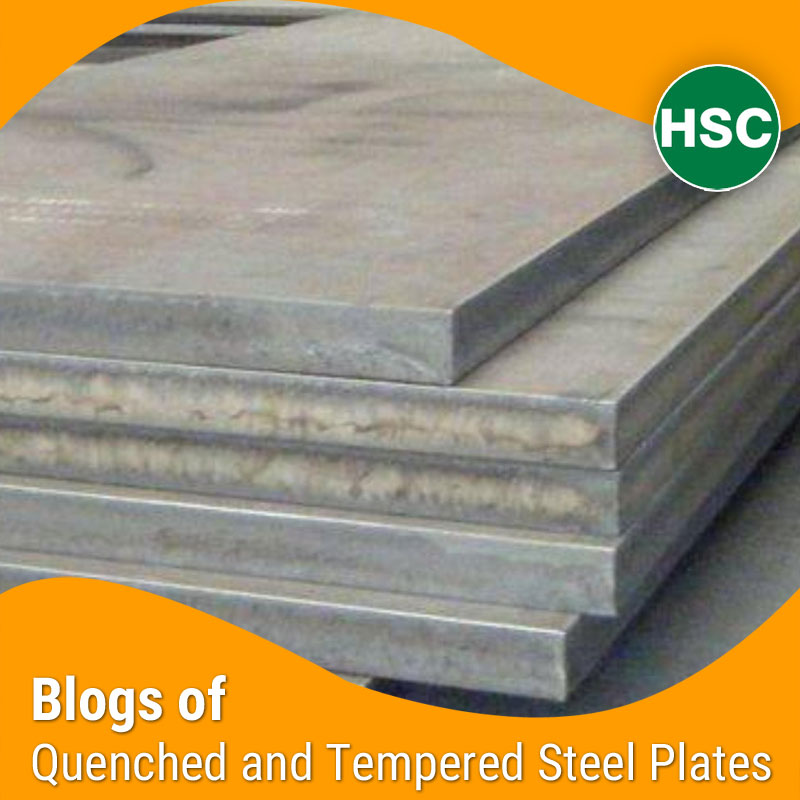Quick Intro: S690QL vs S960QL – Why This Comparison Matters
When you’re choosing between S690QL and S960QL, you’re not just comparing two steel plates—you’re deciding the strength, safety, and cost-efficiency of your entire structure. These quench-and-tempered (Q&T) steels are often used in high-load environments like cranes, trailers, defense vehicles, and mining equipment.
So, which one should you go for?
This guide breaks it down in simple, practical terms—no jargon, just real-world impact.
Definition & Basic Difference
| Feature | S690QL | S960QL |
|---|---|---|
| Minimum Yield Strength | 690 MPa | 960 MPa |
| Standard | EN 10025-6 | EN 10025-6 |
| Tensile Strength Range | 770–940 MPa | 980–1150 MPa |
| Typical Use Cases | Frames, structural supports, transport chassis | Cranes, lifting arms, military armor, load-bearing booms |
| Ease of Fabrication | Easier | Slightly challenging due to higher hardness |
| Weldability | Very good | Good (requires better control) |
Key Insight: S960QL is about 40% stronger than S690QL in yield strength, but may cost more and require tighter control during fabrication.
Why This Difference Matters in Projects
- A trailer designed using S960QL could be thinner and lighter, reducing fuel costs.
- A bridge built with S690QL might be easier to fabricate on-site and more cost-effective.
- For defense or cranes, S960QL provides greater safety margins under dynamic load.
Mechanical Property Comparison
Let’s go deeper than the brochure numbers. Here’s how these two grades compare in the real world:
| Property | S690QL | S960QL |
|---|---|---|
| Yield Strength | ~690 MPa | ~960 MPa |
| Tensile Strength | 770–940 MPa | 980–1150 MPa |
| Elongation (min.) | ~14% | ~10% |
| Hardness (Brinell) | ~250 HBW | ~290 HBW |
| Charpy Impact (–40°C) | ≥30J | ≥30J |
| Density | 7.85 g/cm³ | 7.85 g/cm³ |
Interpretation
- S960QL offers higher strength per mm thickness, useful where weight saving is key.
- S690QL provides more ductility, which is better for forming and cold bending.
Welding, Cutting & Fabrication Differences
| Feature | S690QL | S960QL |
|---|---|---|
| Weldability | Excellent | Good, but needs preheat/interpass control |
| Preheat Requirement | Low to moderate | High (especially for thick sections) |
| Cutting | Standard plasma/oxy-fuel works well | Requires sharper tools and heat control |
| Forming / Bending | Easier | Limited due to high strength |
| Machining | Easier | Slightly tougher on tools (harder steel) |
If your team is new to high-strength steel, start with S690QL. If you’re aiming for weight saving without compromising load capacity, go for S960QL with proper fabrication processes.
Application Differences: Where is Each Grade Preferred?
Use Cases for S690QL:
- Bridge beams and structural supports
- Truck frames and long trailers
- Construction equipment arms
- General fabrication with welding/forming needs
Use Cases for S960QL:
- Crane booms and lifting platforms
- Military-grade vehicles and armor
- Lightweight high-rise structures
- High-strength, low-weight engineering parts
Pro Tip: Don’t use S960QL where forming, bending, or frequent welding is needed unless your facility is equipped for it.
Cost & Availability
| Parameter | S690QL | S960QL |
|---|---|---|
| Base Price (Indicative) | ₹100–₹130/kg | ₹130–₹160/kg |
| Availability in India | Widely stocked | Less common, may require import |
| Lead Time | Short | Moderate to long depending on thickness |
| Brands Available | Dillimax, JFE HITEN, SAIL, HIND Q&T | Dillimax, JFE HITEN, HIND Q&T Premium |
Key Point: S690QL is more cost-effective for regular projects. S960QL is suitable when high performance justifies higher price and processing effort
Which to Choose? Expert Selection Guide
Ask yourself these questions:
- Is weight reduction critical? → S960QL
- Is the fabrication facility standard? → S690QL
- Is dynamic load or safety factor priority? → S960QL
- Is tight budget and faster delivery important? → S690QL
🔧 Fabricator Tip: S690QL is the default smart choice. Upgrade to S960QL only when your application absolutely needs higher strength and your team can handle the fabrication specs.
FAQs – Voice Search Optimized
What is the difference between S690QL and S960QL?
S690QL has a yield strength of 690 MPa, while S960QL offers 960 MPa. S960QL is stronger but harder to weld
Which is better for cranes—S690QL or S960QL?
S960QL is better due to its higher strength and lower weight per load ratio.
Is S960QL costlier than S690QL?
Yes, S960QL is about 20–30% more expensive depending on thickness and origin.
Can I use S960QL in place of S690QL?
Only if your application can justify the strength and your team can handle its fabrication needs.
Is S690QL easier to weld than S960QL?
Yes. S690QL has better weldability and lower preheat requirements.
Are both grades EN 10025-6 compliant?
Yes. Both follow EN 10025-6 standards for Q&T steels.
What are common thicknesses for S690QL and S960QL?
S690QL: 6–120 mm; S960QL: 6–80 mm in standard supply.
Which steel is best for lightweight vehicle frames?
S960QL is ideal due to its strength-to-weight ratio.
Is S960QL available in India?
Yes, but limited. HIND Q&T and few importers stock it.
Can I buy custom size S690QL/S960QL plates?
Yes. Hindustan Steel offers cut-to-size, CNC profiled, and OEM-ready solutions

